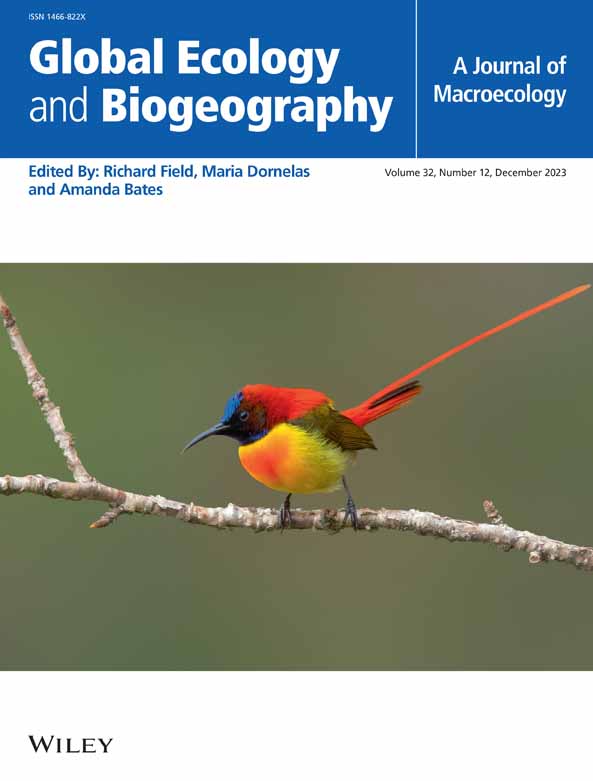As global change accelerates, accurate predictions of species distributions and biodiversity patterns are critical to limit biodiversity loss. Numerous studies have found that coarse-grain species distribution models (SDMs) perform poorly relative to fine-grain models because they mismatch environmental information with observations. However, it remains unclear how grain-size biases vary in intensity across space and time, possibly generating inaccurate predictions for specific regions, seasons or species. For example, coarse-grain biases may intensify in patchy, discontinuous landscapes. Such biases may accumulate to produce highly misleading estimates of continental and seasonal biodiversity patterns.
United States and Canada.
2004–2021.
Birds (Aves).
We fit presence-absence SDMs characterising the summer and winter distributions of 572 bird species native to the US and Canada across five spatial grains from 1 to 50 km, using observations from the eBird citizen science initiative. We combined these predictions to generate seasonal biodiversity estimates across the US and Canada, which we validated using observations from 322 independent sites.
We find that in both seasons, 1 km models more accurately predicted species presence, absence and richness at local sites. Coarse-grain models (even at 3 km) consistently under-predicted range area, potentially missing important habitat. This bias intensified during summer (83%–86% of species) when many birds have smaller ‘operational scales’ via localised home ranges while breeding. Biases were greatest in desert regions with patchier habitat and for range-restricted and habitat-specialist species. Predictions based on coarse-grain models overpredicted avian diversity in the west and underpredicted it in the great plains, prairie pothole region and boreal zones.
We demonstrate that coarse-grain models can bias seasonal and continental estimates of biodiversity patterns across space and time and that grain-related biases intensify during summer and in patchier landscapes, especially for range-restricted and habitat specialist species at risk of population declines.


